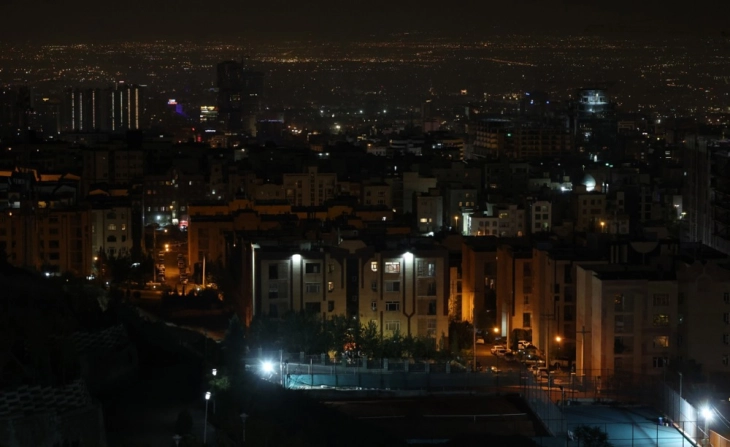Israel attacks Iranian military sites including missile facilities
- The Israeli military carried out its long-anticipated retaliatory attack on Iran on Saturday on what it said were "precise strikes" on military targets.

Tel Aviv, 26 October 2024 (dpa/MIA) - The Israeli military carried out its long-anticipated retaliatory attack on Iran on Saturday on what it said were "precise strikes" on military targets.
After four to five hours of air attacks in waves, in what the Israel Defense Forces (IDF) dubbed the "Days of Repentance," the army said its mission was completed.
"We carried out precise and targeted on targets in different areas in Iran," IDF spokesman Daniel Hagari said in the morning, saying these included missile production facilities. Ground-to-air missile systems and air defence systems were also attacked.
"Israel now has broader aerial freedom of operation in Iran," said Hagari. The locations were selected from a list of targets. Should it become necessary, more targets from this list could be attacked, he said.
According to media reports, Israel bombed a total of around 20 targets in Iran.
Iranian media reports limited damage
The US had urged Israel, as its most important ally, not to attack nuclear facilities or oil fields in Iran. Iranian media initially reported "limited damage" at military bases in the country. So far, there have been no reports of possible casualties.
Iranian airspace was not closed immediately, but it did close shortly after the attack began, and later reopened after Israel said it had concluded its operation.
Iranian state media reported explosions in the vicinity of the capital, Tehran, home to 15 to 20 million people. Early in the morning, explosions could also be heard in the city centre, and anti-aircraft fire was visible.
No official information from either side was initially available on casualties or damage.
Israel's strikes on Iranian targets are seen as retaliation for Iran's October 1 attack on Israel, in which it launched nearly 200 ballistic missiles against the Jewish state.
Israel said it had launched the strikes because Iran's government - and its proxies - "have been relentlessly attacking Israel" since the Palestinian Islamist Hamas group invaded Israel on October 7 last year. The attackers killed some 1,200 people in Israel, took some 250 hostage and started the current war between Israel and Hamas.
These attacks have been on seven fronts - including directly from Iran, the IDF said in a post on Telegram.
Israel has not only been fighting Hamas in Gaza but also on its northern front with the Iran-backed Hezbollah militia, which attacked Israel the day after the Hamas attack, it said in solidarity with Hamas. Iran-backed Houthis in Yemen have also attacked Israel.
"Like every other sovereign nation in the world, the State of Israel has the right and the duty to respond," the IDF wrote on Telegram.
Reports: Bases in south and south-west attacked
According to Iranian news agency Fars, military bases in the south and south-west of Tehran were the targets of the attacks. There has been no official confirmation of this yet.
Iranian media reported explosions in western Tehran, with state television reporting the activation of air defences. Eyewitnesses and Iranian media reported an explosion in central Tehran as well.
Washington backs Israeli right to self-defence
US Defense Secretary Lloyd Austin reassured his Israeli counterpart in a phone call of US support for Israel's right to defend itself.
"Secretary Austin reaffirmed the ironclad commitment of the United States to Israel's security and right to self-defense," said a statement released by the Pentagon.
Austin also said it the US is determined to "prevent any actor from exploiting tensions or expanding the conflict in the region."
Iranian response feared
"There is no doubt that Israel will receive an appropriate response to any action," the Tasnim news agency quoted an anonymous source from the government. Tasnim is considered the mouthpiece of the Islamic Revolutionary Guard Corps (IRGC), Iran's elite military force.
IDF spokesman Hagari warned Iran, after the strike ended, against further escalation. "Should the regime in Iran make the mistake of initiating a new round of escalation, we are obliged to respond," he said.
The US government also urged Iran, shortly before the presidential election in the United States, not to further escalate the conflict.
A senior government official pointed out that Israel had followed the US government's recommendation to limit the attack to military targets and avoid civilian casualties.
Photo: EPA







